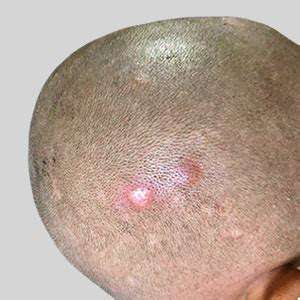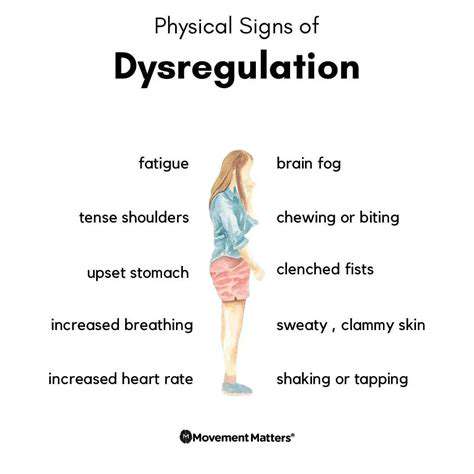Seek Help if Headaches: When to Consult a Professional
Types of Headaches That May Require Professional Attention
1. Migraines: More Than Just a Typical Headache
Migraines are a specific type of headache that can cause intense pain, often accompanied by other symptoms such as nausea and sensitivity to light and sound. These debilitating episodes can last for hours or even days, making it difficult for individuals to carry out daily activities.
If you experience migraines regularly, it is essential to consult a healthcare professional. They can help assess the frequency and severity of your migraines and suggest potential treatment options, including medications and lifestyle adjustments.
Additionally, some individuals may experience migraine with aura, which includes visual disturbances prior to the headache onset. This can increase the risk of more severe complications, making professional evaluation critical.
Tracking your migraine patterns, triggers, and symptoms in a headache diary is a practical step to take before your appointment. This information can provide your healthcare provider with valuable insights to facilitate diagnosis and tailored treatment.
Ultimately, if migraines interfere significantly with your life, seeking help can lead to better management strategies, resulting in improved quality of life.
2. Tension Headaches: Recognizing the Signs
Tension-type headaches are among the most common forms of headaches, often characterized by a dull, aching sensation all over the head. They may also involve tenderness in the scalp, neck, and shoulder muscles. While some tension headaches can be managed with over-the-counter pain relievers, chronic cases require professional intervention.
Consulting a specialist is vital if you notice a significant increase in the frequency or severity of your tension headaches. This change may indicate an evolving issue, such as muscle strain or stress-related factors, that needs professional evaluation.
Healthcare providers can recommend various treatments, from relaxation techniques, physical therapy, and stress management strategies to medication adjustments. Understanding your triggers—be they emotional stress, poor posture, or eye strain—can also inform effective management.
In some cases, chronic tension headaches can be symptomatic of other underlying health issues, making it critical to seek a comprehensive assessment. This process can aid in identifying any contributory factors requiring attention.
Ultimately, consistent evaluations by a healthcare professional can help ensure you receive proper care and advice, potentially leading to significant relief and a better understanding of your headache patterns.
3. Cluster Headaches: A Rare but Severe Condition
Cluster headaches are an excruciating type of headache that occurs in cyclical patterns or clusters, often affecting one side of the head. Despite their rarity, they are known for their intense pain and can be debilitating for those who suffer from them.
If you suspect you are experiencing cluster headaches, it is crucial to consult a healthcare professional. Diagnosis often involves a thorough medical history and may require imaging tests to rule out other serious conditions.
Health professionals can prescribe specific treatments aimed at relieving cluster headaches, including oxygen therapy and prescription medications that can help reduce the frequency of attacks. Understanding the cyclical nature of cluster headaches is essential for effective management strategies.
Some patients may benefit from preventive treatments that help decrease the frequency and severity of attacks. Working closely with a healthcare provider can facilitate finding the right approach tailored to the individual's needs.
Recognizing the symptoms early and seeking help can significantly impact the life of someone who suffers from cluster headaches, opening the door to effective management and improved quality of life.
Signs That Indicate You Should Seek Help
Persistent Headaches that Last More Than a Few Days
One of the most telling signs that it’s time to seek medical attention for headaches is their persistence. If you experience headaches that last longer than three days, it’s essential to consult a healthcare professional. Extended headache episodes may signal underlying health issues that require diagnosis and treatment.
Persistent headaches can disrupt daily activities and affect your quality of life. They may be indicative of tension, migraines, or even serious conditions such as sinus infections or neurological disorders. Documenting the frequency and duration of your headaches can provide valuable information to your healthcare provider.
Not only can chronic headaches diminish your productivity, but they can also lead to anxiety and stress about the condition itself. Expert advice and treatment options can help manage and potentially alleviate these headaches, allowing you to regain control of your overall well-being.
Don’t ignore headaches that linger; taking proactive steps to address them could lead you to recovery or at least better management of the symptoms. Early intervention is critical in preventing chronic pain and its associated complications.
Headaches Accompanied by Severe Symptoms
If your headache is accompanied by severe symptoms such as high fever, stiff neck, confusion, vision changes, or difficulty speaking, it’s crucial to seek immediate medical attention. These symptoms can indicate serious conditions such as meningitis, stroke, or other neurological problems that must be addressed urgently.
Acute headaches that come on suddenly and have a ‘thunderclap’ nature should never be taken lightly. Such headaches, often referred to as ‘worst headache of your life’, warrant immediate evaluation to rule out life-threatening conditions like aneurysms or hemorrhages.
In addition, if you experience a headache after a head injury, it’s vital to monitor for other symptoms such as loss of consciousness or vomiting. Traumatic brain injuries can present subtle signs, and timely intervention can be life-saving.
Understanding when a headache is symptomatic of a more serious issue can not only save your life but also improve outcomes. Never hesitate to visit a healthcare professional when faced with alarming symptoms accompanying your headache.
The Importance of Professional Evaluation

The Role of a Healthcare Provider in Diagnosis
When experiencing frequent or severe headaches, it's crucial to consult a healthcare provider for an accurate diagnosis. A healthcare professional can help determine the underlying cause of your headaches, which might not always be apparent through self-assessment.
They may conduct a thorough examination, review your medical history, and possibly order imaging tests to rule out more serious conditions. This comprehensive approach ensures that any potential issues are identified early on, which can be vital for effective treatment.
Identifying Warning Signs that Require Immediate Attention
There are specific symptoms associated with headaches that should prompt immediate medical attention. These warning signs include sudden onset of severe headache, particularly if it feels like a “thunderclap,” or headaches accompanied by neurological symptoms, such as vision changes or speech difficulties.
Additionally, if headaches are paired with fever, stiff neck, or confusion, it is essential to seek emergency care. Recognizing these signs early can make a significant difference in the potential outcomes of treatment.
Understanding Different Types of Headaches
Headaches can vary greatly, with different types including tension, migraine, and cluster headaches. Each type has its own triggers and treatment options, making it vital for individuals to identify their specific headache type to obtain the proper treatment.
For instance, migraines may require preventive medications or specific lifestyle changes, whereas tension headaches can often be alleviated through stress management techniques. Understanding the type of headache is key to effectively managing and reducing their frequency.
Importance of Continuous Monitoring and Follow-Up
Once a healthcare provider has been consulted, it is equally important to continue monitoring your headaches and maintaining communication with your professional. Keeping a diary of headache occurrences can help both you and your healthcare provider identify patterns and triggers.
Regular follow-up appointments allow for adjustments in treatment plans and can ensure that any changes in your headache pattern are adequately addressed. This ongoing evaluation is crucial for long-term management of headaches.





